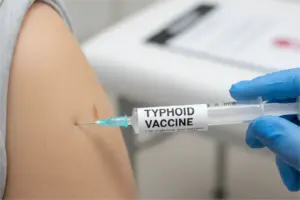
The Korean Society of Pathologists has raised significant concerns about diagnostic delays caused by procedural limitations in the reimbursement evaluation process of immunohistochemistry (IHC)-based companion diagnostic devices. Despite approvals by the Ministry of Food and Drug Safety (MFDS), these delays hinder timely access to essential diagnostics and treatments for cancer patients.
The Call for an Integrated Review System
To address this issue, the society has proposed an “integrated review” system that would bring together the MFDS, the National Evidence-based Healthcare Collaborating Agency (NECA), and the Health Insurance Review and Assessment Service (HIRA) to conduct simultaneous evaluations and approvals. This approach aims to reduce diagnostic gaps and ensure cancer patients can access life-saving treatments without delay.
Focus on Personalized Cancer Treatment
The debate, co-hosted by Reps. Nam In-soon and Kim Nam-hee of the National Assembly’s Health and Welfare Committee, alongside the Korean Cancer Association and The Korean Doctors Weekly, emphasized the critical role of companion diagnostics in personalized cancer care. These diagnostics help identify specific genes or proteins in cancer cells, enabling tailored treatment approaches that maximize effectiveness while reducing unnecessary side effects and costs.
Expert Perspectives
Professor Lee Hye-seung of Seoul National University Hospital highlighted the interdependence of companion diagnostics and targeted therapies. Delays in introducing these diagnostics disrupt patient care and hinder the efficient use of healthcare resources. Lee stressed that simultaneous access to diagnostics and therapies is vital for improving treatment outcomes.
Professor Won Jae-kyung criticized the inefficiencies in the current evaluation process, particularly for established IHC-based diagnostics. These diagnostics, which are globally standardized and widely used for cancers such as HER2, PD-L1, and ALK, face unnecessary delays due to redundant evaluations. Won proposed a fast-track classification system for proven IHC technologies to expedite their clinical introduction.
Addressing Emerging Cancer Treatments
Dr. Rha Sun-young, president of the Korean Cancer Association, cited recent advancements in gastric cancer treatment as a pressing example. The companion diagnostic for the innovative drug zolbetuximab, targeting Claudin 18.2, has demonstrated remarkable clinical benefits. However, delays in the diagnostic process risk depriving patients of these life-extending treatments.
Advocating for Patient-Centric Solutions
Lee Eun-young, director of the Korea Alliance of Patient Organizations, advocated for integrating the approval and reimbursement processes for companion diagnostics. She pointed to the government’s recent success in expediting drug reimbursement as a model that could be applied to diagnostics.
The Road Ahead
Implementing an integrated review system could revolutionize cancer care by accelerating the adoption of cutting-edge diagnostics and therapies. This would not only improve patient outcomes and quality of life but also support the efficient use of healthcare resources. Furthermore, it would bolster the global competitiveness of Korea’s healthcare and precision medicine industries.
By streamlining processes and prioritizing patient access, Korea has the potential to set a global standard in precision medicine and cancer treatment.
Key Takeaways
Companion diagnostics are essential for personalized cancer treatment.
The current approval and evaluation processes delay access to critical diagnostics and therapies.
An integrated review system can streamline approvals, ensuring timely and effective cancer care.
Rapid adoption of these technologies can improve patient outcomes, reduce costs, and boost national competitiveness.








